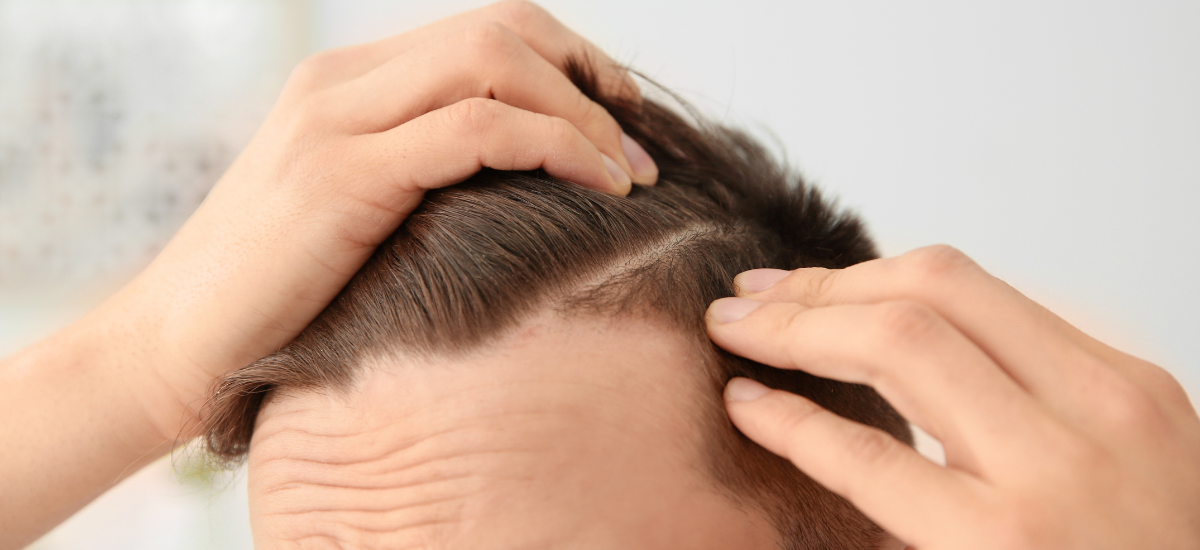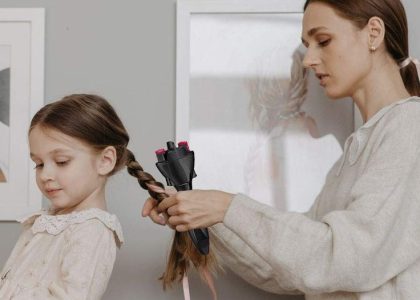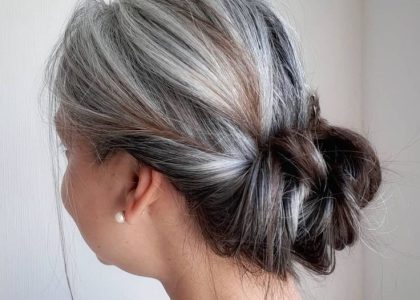Does Creatine Cause Hair Loss? Separating Fact from Fiction
Creatine is a popular supplement used by athletes and fitness enthusiasts to improve muscle performance and recovery. However, some rumors swirl around creatine, including a potential link to hair loss. This article dives deep into the research to explore whether creatine truly contributes to hair loss and equips you with evidence-based information.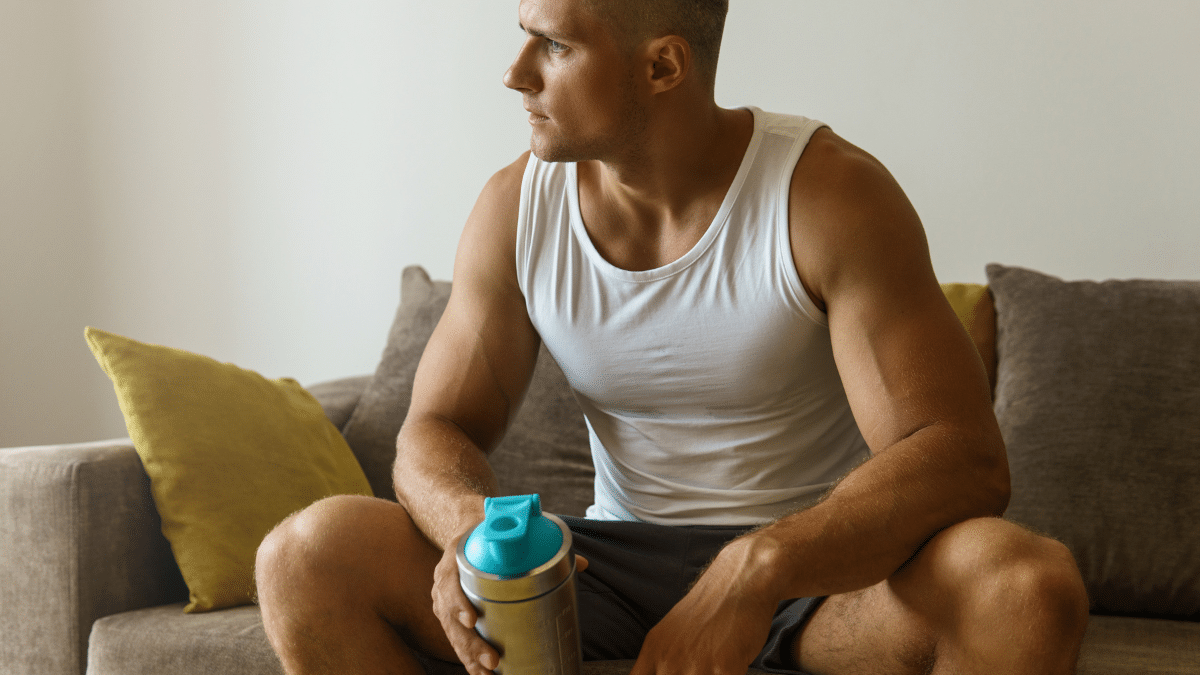
Understanding Hair Loss: Common Causes and Types
Hair loss is a natural phenomenon. We all shed hair daily, and hair typically grows back in a cycle. However, various factors can contribute to excessive hair loss:
- Genetics: Hair loss patterns like male pattern baldness and female pattern hair loss are often hereditary.
- Hormonal Changes: Fluctuations in hormone levels, such as those experienced during pregnancy, menopause, or due to certain medical conditions, can trigger hair loss.
- Stress: Chronic stress can disrupt the hair growth cycle and lead to temporary hair loss.
- Medical Conditions: Certain medical conditions and their treatments, like chemotherapy or thyroid disorders, can cause hair loss.
- Nutritional Deficiencies: Deficiencies in iron, vitamin D, or other essential nutrients can contribute to hair loss.
- Scalp Conditions: Scalp conditions like scalp psoriasis or seborrheic dermatitis can cause hair loss in the affected areas.
Understanding the common causes of hair loss helps us evaluate whether creatine might play a role.
Creatine: Benefits and Potential Side Effects
Creatine is a naturally occurring compound found in muscle cells and can also be obtained through dietary sources like meat and fish. Supplementation with creatine has become increasingly popular among athletes and fitness enthusiasts seeking to enhance their performance and recovery. Let’s delve deeper into the potential benefits and side effects of creatine use:
Benefits:
-
Improved Muscle Performance: Creatine serves as a readily available energy source within muscle cells. During high-intensity exercise, creatine helps replenish adenosine triphosphate (ATP), the primary fuel source for muscle contractions. This can lead to increased strength, power, and endurance, allowing you to train harder and potentially achieve better results.
-
Faster Muscle Recovery: Creatine supplementation may play a role in accelerating muscle recovery after exercise. By replenishing ATP stores and reducing muscle breakdown, creatine can help you recover faster and get back to training sooner. This is particularly beneficial for athletes involved in intense training programs.
-
Potential Benefits Beyond Muscle: While the primary benefits of creatine are linked to muscle performance and recovery, some research suggests it might offer additional advantages. Studies have explored the potential of creatine for improving cognitive function, reducing fatigue, and even managing certain neurological conditions. However, more research is needed to confirm these potential benefits.
Potential Side Effects:
-
Water Retention: Creatine draws water into muscle cells, leading to a slight increase in body weight. This is often referred to as “cellular hydration” and is not the same as fat gain. While some athletes view this as a disadvantage, the added water content can improve muscle function and performance.
-
Stomach Upset: Some individuals experience digestive issues like bloating, cramps, or diarrhea, especially when starting creatine supplementation. These side effects are usually mild and temporary. To minimize them, consider starting with a lower dosage and gradually increasing it, or take creatine with meals.
-
Muscle Cramps: Creatine use might slightly increase the risk of muscle cramps, particularly if you’re not properly hydrated. Ensure you’re drinking sufficient fluids throughout the day, especially during exercise, to minimize this risk.
-
Kidney Concerns: While uncommon in healthy individuals, high creatine intake could potentially place strain on the kidneys. If you have pre-existing kidney problems, it’s crucial to consult with a doctor before starting creatine supplementation.
It’s important to note that these potential side effects are not experienced by everyone, and the severity can vary depending on the individual.
Additional Considerations:
-
Dosage: The optimal creatine dosage depends on several factors, including your body weight, training goals, and experience level. It’s recommended to consult a healthcare professional or a licensed dietician to determine the appropriate dosage for you.
-
Timing: There’s no definitive consensus on the best time to take creatine. Some studies suggest taking it around your workout window, while others haven’t found a significant difference in effectiveness based on timing. Experiment and see what works best for you.
-
Quality: Choose high-quality creatine supplements from reputable brands. Look for creatine monohydrate, the most researched and widely available form. Avoid products with added ingredients or fillers unless specifically recommended by a healthcare professional.
The Science Behind Creatine and Hair Loss: Examining the Evidence
There’s limited scientific evidence to definitively link creatine supplementation to hair loss in humans. Here’s a breakdown of the research:
- One Study: A 2009 study involving rugby players found that creatine supplementation increased levels of dihydrotestosterone (DHT), a hormone linked to male pattern baldness. However, this study had limitations, including a small sample size and not directly measuring hair loss.
- No Direct Link: Several other studies have investigated the relationship between creatine and hair loss, but none have found a conclusive link.
- Focus on Overall Health: Maintaining a healthy diet, managing stress, and addressing any underlying medical conditions are more significant factors in preventing hair loss compared to creatine supplementation.
Best Practices for Hair Health: Supporting Healthy Hair Growth
Regardless of whether you use creatine, prioritizing overall health is crucial for maintaining healthy hair. Here are some tips:
- Balanced Diet: Eat a balanced diet rich in protein, essential vitamins, and minerals to nourish your hair follicles.
- Manage Stress: Chronic stress can disrupt the hair growth cycle. Practice stress-management techniques like yoga or meditation.
- Gentle Hair Care: Avoid harsh shampoos, excessive heat styling, and tight hairstyles that can damage hair.
- Scalp Care: Maintain a healthy scalp by using gentle shampoos and conditioners and addressing any scalp conditions promptly.
- Consult a Doctor: If you’re experiencing excessive hair loss, consult a doctor to rule out any underlying medical conditions.
Creatine and Hair Loss – A Myth Debunked?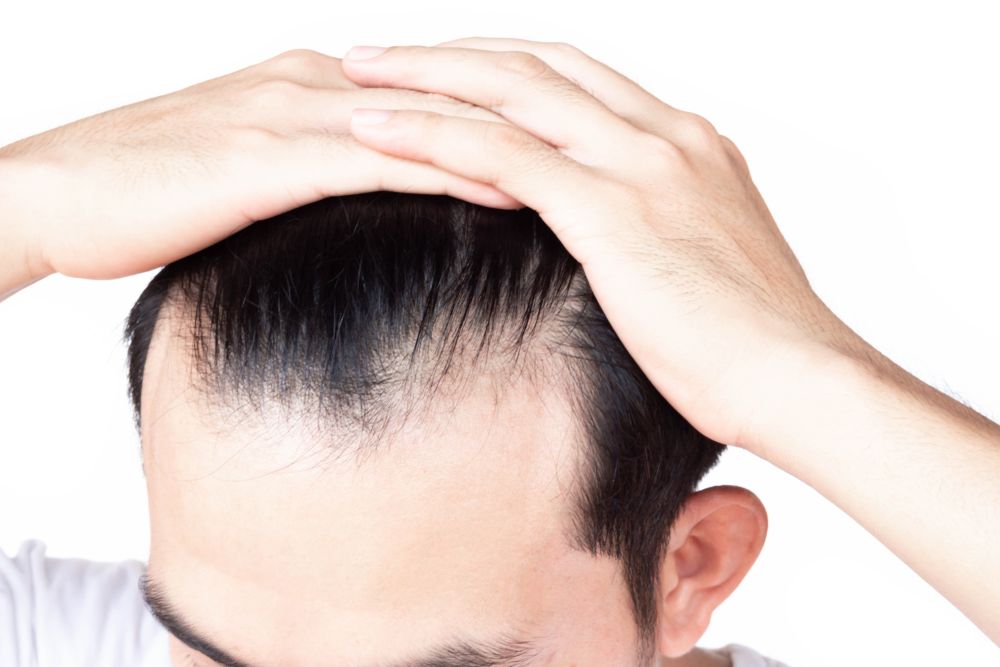
While a single study raised concerns about a potential link between creatine and DHT levels, further research hasn’t established a direct connection to hair loss in humans. If you’re experiencing hair loss, it’s more likely due to other factors like genetics, hormones, or underlying medical conditions.
It’s always advisable to consult a doctor before starting any new supplement, especially if you have any pre-existing health conditions. They can advise you on the appropriate creatine dosage based on your individual needs and assess your risk factors for losing your hair.
Remember, a healthy lifestyle with a balanced diet, stress management, and proper hair care practices are the cornerstones of healthy hair growth. Don’t let the fear of creatine-induced losing your hair deter you from the potential benefits it offers for athletic performance and recovery. If you’re concerned about hair loss, prioritize overall health and consult a doctor to identify the root cause.

